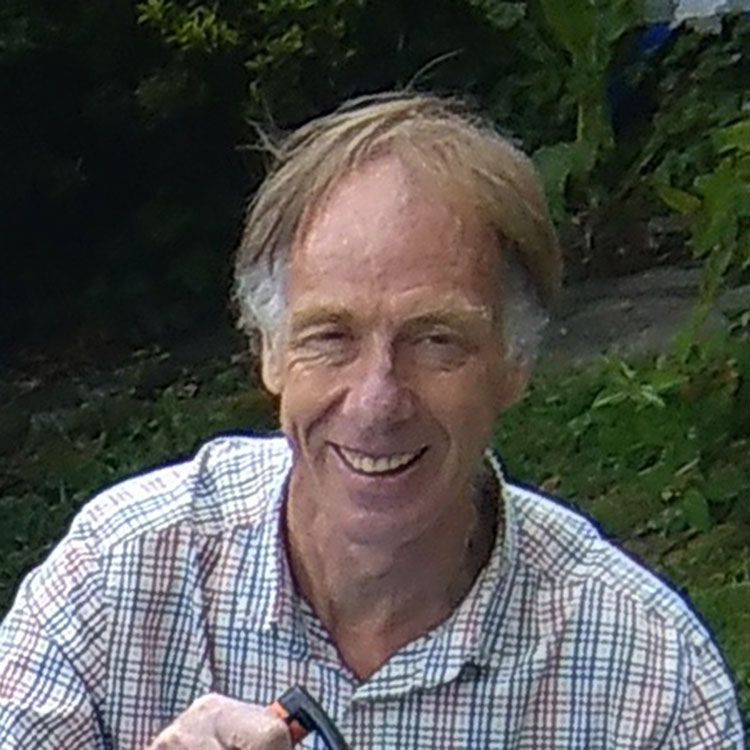
"I love doing research because it’s like detective work but without the blood. I like trying to find the little clues to how Nature works – clues that are often scattered, well hidden, but sometimes blindingly obvious yet ignored. For me this quest often involves first thinking of ways to build really big datasets, for example piecing together multiple studies into a meta-analysis, or mining old historical data sets and compiling them to build long time series."
Angus Atkinson joined Plymouth Marine Laboratory in 2012 from his previous employment (1984-2011) at the British Antarctic Survey. He is interested in all aspects of marine ecology and biogeochemistry, but with main focal areas on plankton and krill species, and particularly in polar regions and in the north Atlantic. Topics of particular interest include Euphausia superba (Antarctic krill); copepods; plankton size structure (biomass spectra); feeding ecology including selectivity; Antarctic, Arctic and north Atlantic food webs; iron cycling by zooplankton; climate warming responses including shifts in phenology, distributional range and body size; and pelagic-benthic coupling via seabed feeding by zooplankton and the biological carbon pump.
To achieve these research objectives, Angus has had a long-standing interest in the generation of long time series which show clues into how real-world zooplankton assemblages have already responded, over multiple decadal timescales, to rapid climate change. To do this he started work at BAS in the 1990s to compile old historical krill records into a central database called KRILLBASE. More recently he has also helped to lead another key time series, collected at the Plymouth Marine Laboratory as part of its Western Channel Observatory (WCO). The plankton observations from this is at weekly resolution and it has been running for over 30 years, offering a super time series, perhaps unique in its resolution.
- NERC Shelf Sea Biogeochemistry Programme (SSB): Co-leader of grazing module 4 of the pelagic component of SSB
- NERC Marine Ecosystems Research Programme (MERP): leader of fieldwork module 2
- Western Channel Observatory time series
- Various WWF projects
- Various Defra funded projects to fund the UK Marine Pelagics expert group
- Atkinson A (1996). Subantarctic copepods in an oceanic, low chlorophyll environment: ciliate predation, food selectivity and impact on prey populations. Marine Ecology Progress Series 130:85-96
- Atkinson A, Siegel V, Pakhomov E, Rothery P. (2004). Long-term decline in krill stock and increase in salps within the Southern Ocean. Nature 432: 100-103
- Atkinson A, Siegel V, Pakhomov EA, Rothery P, Loeb V, Ross RM, Quetin LB, Fretwell P, Schmidt K, Tarling GA, Murphy EJ, Fleming A (2008). Oceanic circumpolar habitats of Antarctic krill. Marine Ecology Progress Series 362: 1-23
- Atkinson A, Harmer, RA, Widdicombe CE, McEvoy AJ, Smyth TJ, Cummings DG, Somerfield PJ, Maud JL, McConville K (2015). Questioning the role of phenology shifts and trophic mismatching in a planktonic food web. Progress in Oceanography 137:498-512
- Atkinson A, Hill SL, Pakhomov EA, Siegel V, Reiss CS, Loeb VJ, Steinberg DK, Schmidt K, Tarling GA, Gerrish L, Sailley SF. (2019) Krill (Euphausia superba) distribution contracts southward during rapid regional warming. Nature Climate Change.
- Atkinson A, Lilley MKS, Hirst AG, McEvoy, AJ, Tarran GA, Widdicombe CE, Fileman ES, Woodward EMS, Schmidt K, Smyth TJ, Somerfield PJ (2020) Increasing nutrient stress reduces the efficiency of energy transfer through planktonic size spectra. Limnology and Oceanography.
Recent publications
- Hill, SL; Atkinson, A; Arata, JA; Belcher, A; Bengston Nash, S; Bernard, KS; Cleary, A; Conroy, JA; Driscoll, R; Perry, F.; 2024. Observing change in pelagic animals as sampling methods shift: the case of Antarctic krill. Frontiers in Marine Science.
- Hill, SL; Atkinson, A; Arata, JA; Belcher, A; Nash, SB; Bernard, KS; Cleary, A; Conroy, JA; Driscoll, R; Fielding, S; Flores, H; Forcada, J; Halfter, S; Hinke, JT; Hückstädt, L; Johnston, NM; Kane, M; Kawaguchi, S; Krafft, BA; Krüger, L; La, HS; Liszka, CM; Meyer, B; Murphy, EJ; Pakhomov, EA; Perry, F.; Piñones, A; Polito, MJ; Reid, K; Reiss, C; Rombolá, E; Saunders, RA; Schmidt, K; Sylvester, ZT; Takahashi, A; Tarling, GA; Trathan, PN; Veytia, D; Watters, GM; Xavier, JC; Yang, G; 2024. Observing change in pelagic animals as sampling methods shift: the case of Antarctic krill. Frontiers in Marine Science.
- McQuatters-Gollop, A; Stern, RF; Atkinson, A; Best, M; Bresnan, E; Creach, V; Devlin, M; Holland, M; Ostle, C; Schmidt, K; Sheppard, L; Tarran, GA; Woodward, EMS; Tett, P; 2024. The silent majority: Pico- and nanoplankton as ecosystem health indicators for marine policy. Ecological Indicators.
- McQuatters-Gollop, A; Stern, RF; Atkinson, A; Best, M; Ostle, C; Sheppard, LW; Bresnan, E; Creach, V; Devlin, M; Holland, M; 2024. The silent majority: pico- and nanoplankton as ecosystem health indicators for marine policy. Ecological Indicators.
- Corona, S; Hirst, AG; Atkinson, D; Renz, J; Boersma, M; Atkinson, A; 2024. Long‐term shifts in phenology, thermal niche, population size, and their interactions in marine pelagic copepods. Limnology and Oceanography.